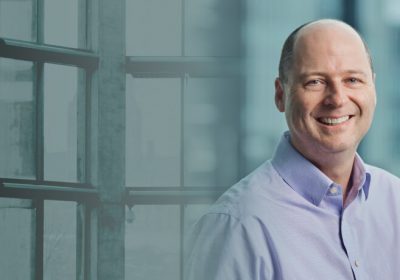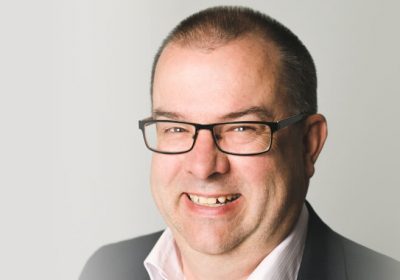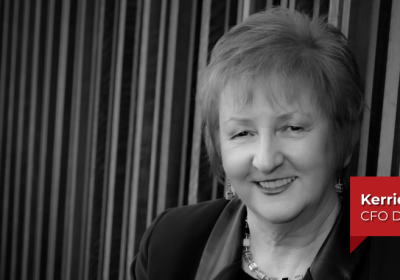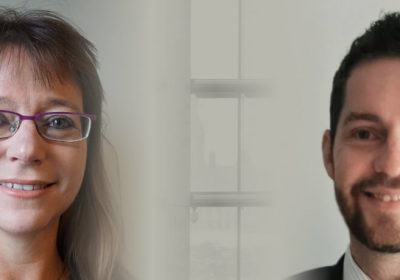
- Author: Jessica Mudditt
- Posted: February 22, 2022
The Journey to CFO: Janet Ha Le’s upward career trajectory
Janet Ha Le looks back on her first 18 months in the role of CFO at Compass Education and explains why she enjoys being a private equity CFO.
Throughout her career, Janet Ha Le has made strategic decisions about the kinds of opportunities she has sought. When she entered the workforce in Vietnam after graduating with a high distinction in economics in the late 1990s, the profession of accounting and auditing were in their infancy in Vietnam during the shift from a centrally planned economy to a market oriented one.
“Prior to the Reform Policies [of the 1980s], everything was centrally planned and in self-isolation,” she says.
Le joined a business in Ho Chi Minh as a bookkeeper, and whenever a foreigner phoned up, her colleagues made her take the call because she spoke the best English. Le took an unusual sideways step when she became an executive assistant for an English-speaking CEO. It was essentially a demotion, but she took the job as a means of improving her English skills.
After 12 months, Le returned to her finance career and being bilingual soon created fresh opportunities. She was selected by PwC to become one of its local staff. The Big 4 firm had set up an office a few years earlier, after Vietnam embarked on a series of economic reforms to move away from a centralised economy towards a market-driven one.
Le spent four years with PwC Vietnam before she was transferred to Melbourne, and later took on another role in Brisbane. As senior manager, she handled complex financial statement audits on clients in a variety of sectors, including oil and gas, mining, construction, retail, manufacturing and services. Altogether, she was with the company for 14 years.
Moving into investments
In 2011, Le joined SEEK as a finance manager, and in 2018 she became Group Finance Director. She reported to the SEEK Group CFO and managed around 20 staff.
One of her responsibilities included leading the finance function and partnering with the SEEK Investments Executives in managing a global asset portfolio for medium to long-term capital appreciation. The assets had a combined revenue of $750 million and a valuation of $2.5 billion.
She also led the finance team in partnering with the corporate development function in complex merger and acquisition transactions. Le was responsible for the integrity and accuracy of SEEK Group’s internal and ASX and external reporting.
“My role in the venture capital arm of SEEK helped me form a helicopter view from an investor’s perspective at a business,” she says. “I would look at how it performed and would drive the outcome by influencing management as to what I thought the business should do.”
She enjoyed her work at SEEK, but she also realized that she wanted to become a CFO in her next role.
“I spoke to my boss about going back to school, because I wanted to be more than just finance,” she says.
Le completed an executive MBA at Melbourne Business School in 2019 and in 2021 she joined Compass Education as its CFO.
“As an investor, you can only have so much influence because you are not actually inside the businesses,” she says. “I wanted to be in a scale-up organizations and help drive the business to maximise shareholder returns. That is what drove me to take the opportunity with Compass.”
Compass is Australia’s most comprehensive school management platform, which is designed to make school days more productive, enabling teachers to teach and students to learn, by freeing up their time in doing administrative tasks. It was founded 12 years ago by John de la Motte and Lucas Filer, over a team lunch meeting. Fast forward a decade and Compass’ school management ecosystem is now used in 2,100+ schools which represents more than 20% of the Australian addressable market.
International expansion was necessary to expand Compass’ addressable market beyond Australia. Compass is currently also being used by schools in the United Kingdom, New Zealand and Ireland.
Private versus public
Compass Education is backed by leading private equity firm, Advent Partners. This marries well with Le’s skills in understanding an investor’s perspective.
“I was confident that I could deliver and drive an outcome that investors were looking for,” she says.
While an unlisted entity takes a different path from private equity, she enjoys both equally.
“In private equity-backed organisations, people know that you normally have a defined period of time (such as three, five or seven years) to deliver the best outcomes to your financial sponsors and other shareholders. You work towards an exit strategy,”
Janet Ha Le – CFO | Compass Education
“Rightly or wrongly, a listed entity growth/investment strategy is also somewhat restricted by short-term market expectations, often over the next 12 months or the next financial year. Personally, I think that three to seven years gives management a reasonably long period to plan and respond to market conditions. If it isn’t long enough for you to deliver, then you need to look back and think about what you’re doing and the changes you need to make.”
As the CFO at Compass, Ha Le has just the one main financial sponsor to work with, and that presents an opportunity to build up a deeper level of trust and confidence.
“You have an opportunity to create a meaningful relationship between the financial sponsor and the investment. You get a deeper understanding into how they work, and they get a deeper understanding into how Compass works. It takes relationship building to the next level and I enjoy that process,” she says.
The other thing she loves about her role is the variety that comes with it. Flexibility is key.
“You need to be able to deal with anything that lands on your desk. Finance is probably only 50%-60% of what I’m doing. I also support other areas of the business including account management, legal, information technology, team/leadership matters and decision making at the executive level.”
Overseas expansion
The COVID-19 pandemic and the abrupt switch to remote learning made Compass’ platform more ingrained in schools’ operations, says Le.
Not long after the pandemic began in 2020, Compass began to develop and tailor its product offerings to the United Kingdom. The UK has ~30,000 schools and presents an attractive opportunity for Compass due to the same significant tailwinds driving underlying market growth.
“Compass will continue to expand,” says Le. “We are looking at opportunities in other countries including the United States, but our immediate focus at the moment is win the UK market.”








